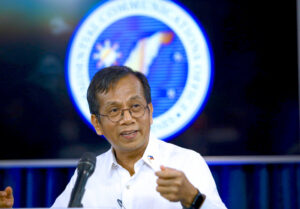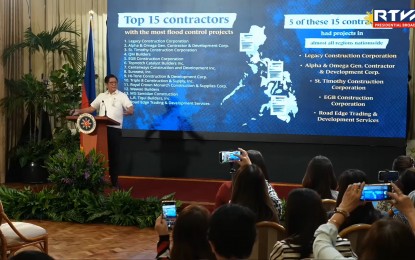The Philippines can still escape the so-called “middle-income trap” provided that it follows structural reforms and ramps up productivity, National Economic and Development Authority (NEDA) Secretary Arsenio Balisacan said.
Balisacan made the remarks in a briefing on Tuesday, April 29, after the World Bank projected that the Philippines could achieve upper-middle-income classification by 2027—a target now facing uncertainty due to slowing global growth.
The World Bank defines middle-income economies as those with gross national income (GNI) per capita between roughly 1,400 and 14,500—a broad range that requires sustained growth to escape. Countries risk stagnation if they rely too heavily on low-cost labor and capital without transitioning to innovation-driven productivity gains.
“The biggest threat to escaping the middle-income trap is complacency,” Balisacan said.
“If you delay reforms because of global uncertainty, you miss the chance to position yourself for recovery,” he added.
Before the pandemic, the Philippines grew at an average of 6.3% annually for a decade. Post-pandemic, growth has rebounded to around 6%, though institutions like the International Monetary Fund (IMF) and World Bank have recently downgraded projections due to geopolitical tensions, trade disruptions, and inflation.
While Balisacan acknowledged the challenge, he pointed to the Philippines’ resilient pre- and post-pandemic growth rates, averaging 6% annually.
“The misconception is that the middle-income trap is inevitable,” Balisacan said. “It’s not about the income range, but rather the frequent growth slowdowns caused by exhausting traditional growth drivers—cheap labor, capital, and abundant land. Rapid growth can accelerate the transition,” he added.
Balisacan stressed that the government’s Philippine Development Plan focuses on shifting toward high-value industries, digital transformation, and upskilling workers to maintain competitiveness.
Despite global uncertainties trimming growth forecasts from institutions like the IMF and World Bank, Balisacan remained firm on the importance of continuing reforms to enhance competitiveness and attract investment. “Global uncertainty is affecting everyone, but we must stay focused on strengthening the fundamentals,” he said. “Complacency is the real risk.”
Addressing the World Bank’s projection of the Philippines reaching upper-middle-income status by 2027, Balisacan acknowledged setbacks due to global economic slowdowns but reaffirmed the country’s ability to regain lost ground. (TCSP)




